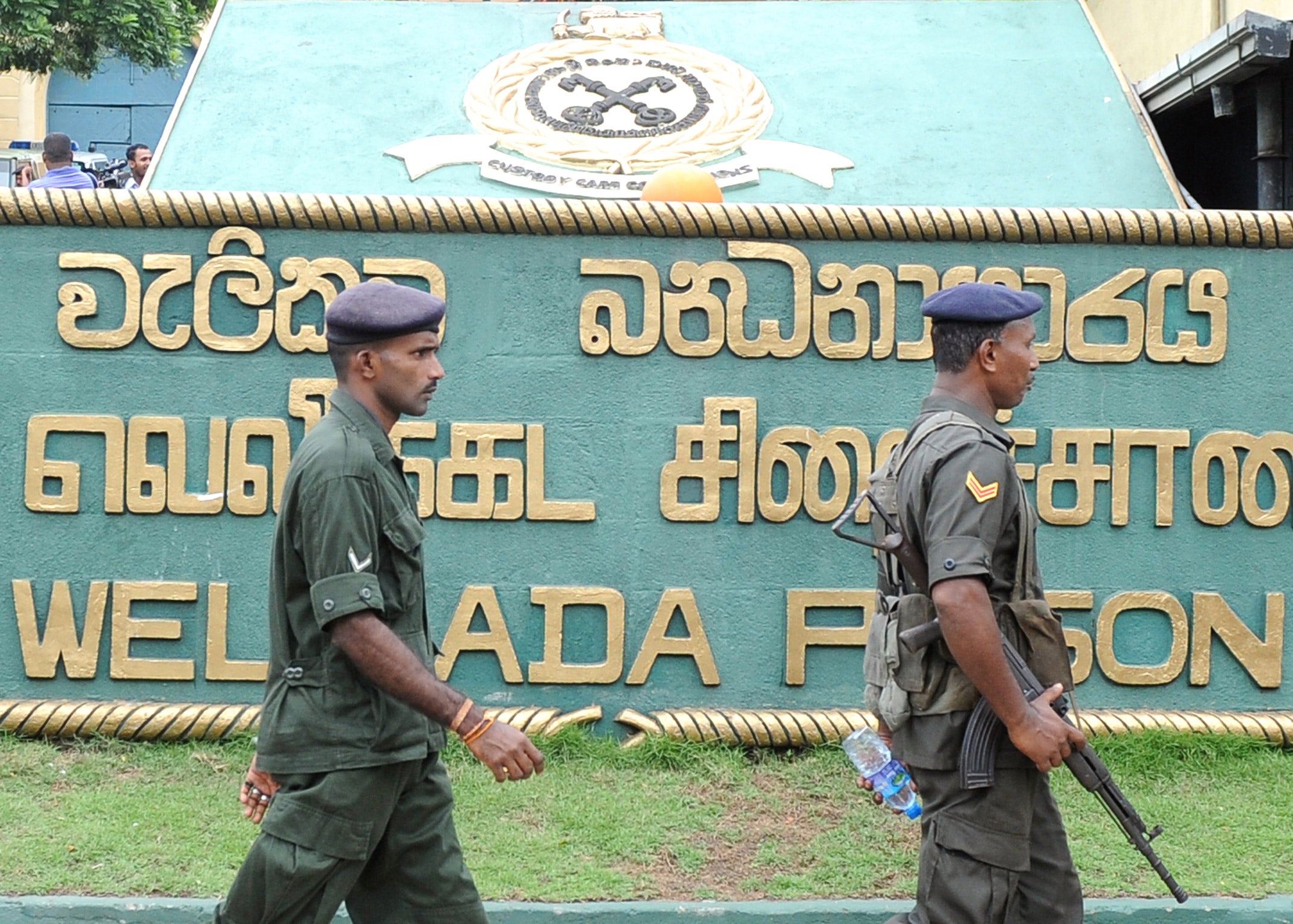Campaigners call for inquiry into death of British Tamil who died in Sri Lankan jail
Viswalingam Gopithas, who ran a small supermarket in London, was arrested in the spring of 2007 accused of trying to smuggle night vision equipment to Tamil rebels

Campaigners have called for an inquiry into the death of a British shopkeeper convicted of trying to help Tamil rebels during a bitter civil war who has died in a Sri Lankan prison. The family of Viswalingam Gopithas, who was held five years without charge, have always protested his innocence.
The British Foreign and Commonwealth Office said it had been informed about the death of Mr Gopithas, who was aged 44 and had two children. He apparently died on Monday morning at Colombo's Welikada jail.
Mr Gopithas, a British Tamil who ran a small supermarket in London, was arrested in the spring of 2007 and accused of trying to smuggle night vision equipment to the Liberation Tigers of Tamil Eelam (LTTE). He said in truth he was trying to take mobile phones and global positioning systems back to Britain for a friend who ran a taxi service.
Mr Gopithas was detained under the controversial Prevention of Terrorism Act which allows people to be held indefinitely without trial. The British government had raised his case several times and had urged the Sri Lankan authorities to either charge or release him. He was charged and convicted in 2012.
Mr Gopithas, whose wife and daughters live in South Chessington, had suffered from health problems and in 2007 endured a stroke. His relatives said the conditions made his condition worse. Sanitation was poor and he was obliged to sleep on a concrete floor.
A spokeswoman for the FCO said in a statement: “We are aware of the death of a British national in Colombo and are providing consular assistance at this difficult time.”
Over the years, Mr Gopithas's family pointed out that he had been in Sri Lanka to visit his father. He had not actually taken any items into the country, leaving them at the bonded section of the airport. Days before he planned to return to the UK he went back to the airport to check on his items when he was arrested.
Local media reported the prisons authorities in Sri Lanka had said Mr Gopithas had died after suffering a heart attack. The adaderana.lk website quoted Commissioner General of Prisons, Chandraratne Pallegama, as saying Mr Gopithas had taken ill at around 7.30am on Monday morning. He died shortly after being taken to the hospital inside the high security prison.
But campaigners said it was essential a credible investigation was carried out. “This was already a tragic case before this happened,” said Jago Russell of the London-based group Fair Trials International. “There needs to be a complete investigation that gets to the bottom of this.”
For more than two decades, the LTTE waged a brutal separatist war against the Sri Lankan government. In 2008, President Mahinda Rajapaksa ordered the military to try and crush the rebels and in May 2009 the last of the rebel fighters were either killed or surrendered.
Hundred of thousands of Tamil civilians were caught up in the fighting. Rebel commanders apparently thought the civilians could be used as a bargaining chip. As it was thousands of them were killed.
A team established by the UN suggested there were credible claims that both the rebel forces and government troops had committed war crimes. It said up to 40,000 civilians may have died.
This week, the United Nation's human rights chief repeated her call for an international inquiry into what happened, something Sri Lanka has always rejected.
Navi Pillay said she wanted to see an “independent, international inquiry mechanism, which would contribute to establishing the truth where domestic inquiry mechanisms have failed”. Her call came ahead of a UN Human Rights Council debate next month that could order action on the issue.
Mr Rajapaksa's government rejected Ms Pillay's claims, saying her recommendations were “arbitrary, intrusive and of a political nature”.
Subscribe to Independent Premium to bookmark this article
Want to bookmark your favourite articles and stories to read or reference later? Start your Independent Premium subscription today.

Join our commenting forum
Join thought-provoking conversations, follow other Independent readers and see their replies